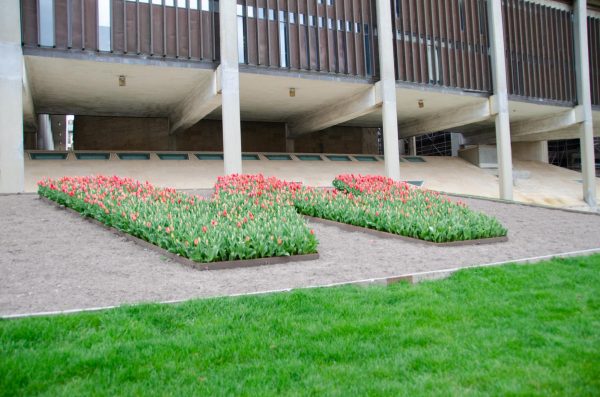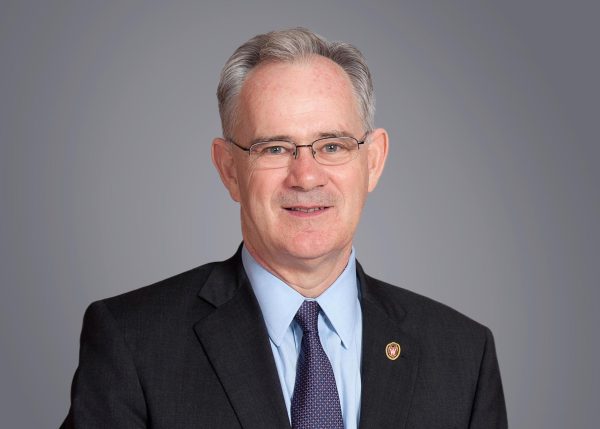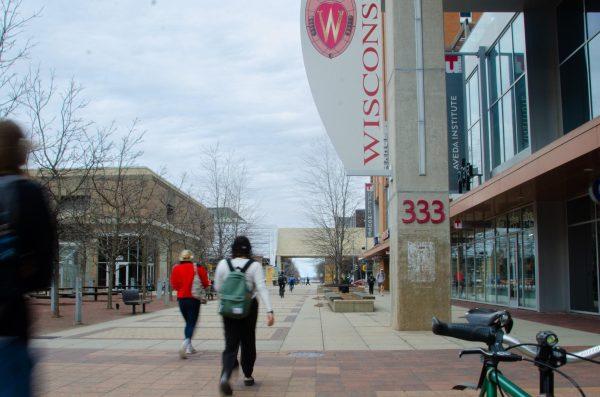University of Wisconsin–Madison Chancellor Jennifer Mnookin and Vice Chancellor of Student Affairs Lori Reesor met with student journalists Tuesday. The university leaders fielded questions regarding protests on campus, affinity spaces and the Associated Students of Madison, UW–Madison’s student government.
Reesor said over the past year, protests and counterprotests relating to controversial speakers coming to campus have become increasingly common.
UW–Madison administration is working on gathering feedback from students and working with the UW–Madison Police Department on current efforts to share protest guidelines at events, with plans to implement changes this fall, Reesor said.
“We’ve gotten great feedback from students, and I think we’ll have great processes in place because we know this fall will be absolutely very busy,” Reesor said.
Students on the UW–Madison campus have demonstrated in recent months in response to the war in Gaza. This week, pro-Palestinian camp-in protests on college campuses across the U.S., including Columbia University and New York University, have led to student arrests.
Mnookin said if similar protests occur on the UW–Madison campus, students and community members will be encouraged to protest in accordance with UW System guidelines.
UW System guidelines for conduct on university lands prohibit people from camping on UW land, “except in those areas specifically designated as picnic or camping grounds, or as authorized by the chief administrative officer,” UWS 18.06(4) says.
“We want students to be able to have spaces for free expression, but we also want them to adhere to our rules and policies,” Mnookin said.
In recent months, UW–Madison has also received feedback from students who want to see increased representation through physical spaces on campus, including those who identify as military-affiliated, and students of Middle East and North African descent.
The university has brought in architectural consultants who are considering using parts of Wisconsin Unions, the Red Gym and East Campus Mall for such spaces. But there is not currently room to accommodate all of the groups advocating for space, Reesor said.
Reesor hopes these consultations with architects and student groups will allow administrators to create actionable plans to find space for students to gather on campus — though no definitive plans exist yet.
A petition for a MENA student center on campus was created by a current ASM intern and has over 300 signatures. But despite the work ASM does at UW–Madison, Mnookin said students are largely unaware of the body’s power to enact change on campus.
In the March ASM election, only 2.6% of the student body casted votes in the election, whereas typical turnout at public colleges ranges between 10-15%, according to previous reporting from The Badger Herald.
“It’s disappointing to them that there isn’t more interest in their elections from the student body,” Mnookin said. “I don’t feel like I have any sort of simple answer as to why … but we stand ready to partner and to also hear from students about what’s working there and what isn’t.”
Any changes to ASM protocol or campaigning would need to be made by the body itself, Reesor said.
As Spring 2024 commencement approaches, Mnookin acknowledged students’ feelings of uncertainty entering the job market. A recent report from Strada Education found that over half of recent college graduates in the U.S. are underemployed. Despite this, Mnookin emphasized UW–Madison graduates are still competitive applicants in their respective fields.
UW–Madison’s most recent First Destination Survey found that 84% of 2022-23 graduate respondents reported UW–Madison prepared them to take the next steps in their careers.
Mnookin said program-specific career services, like SuccessWorks from the College and Letters of Science, and UW–Madison’s strong alumni network continues to be a valuable resource for students throughout college.
“We’ve had a year of lots of accomplishments and some challenges,” Mnookin said. “I’m excited we’re getting this close to commencement. It’s a pretty wonderful thing to see a group of graduates getting ready for the next stage of their lives.”
















